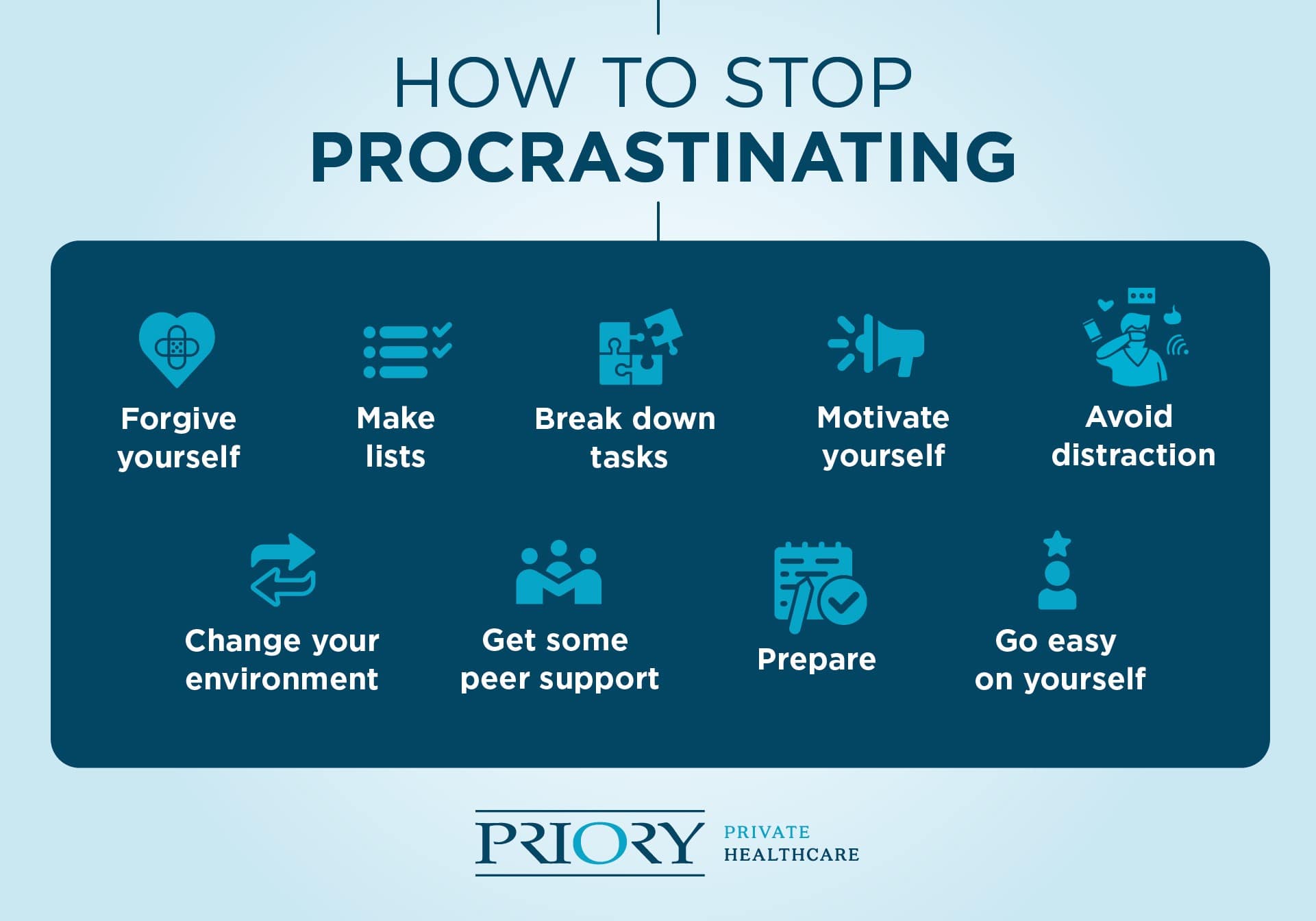Three tips to stop procrastinating
Do you ever find yourself losing focus? Here are some expert tips for staying on task and avoiding procrastination.
Do you ever find yourself losing focus? Here are some expert tips for staying on task and avoiding procrastination.



We’ve all experienced the scenario. Your to-do list is piling up, a deadline is looming or there’s something you just really need to get done. But you can’t bring yourself to do it. You’ll look for anything to distract you, just so long as it means you don’t have to engage in that very task.
Procrastination is something we all encounter, with 25% of adults considering it to be a personality trait for them. It holds us back, damages our time management, and stops us from getting important things done, but it can be reduced. Read on to find out why we procrastinate and what you can do to avoid it.
Before outlining a plan to overcome your procrastination, you need to understand the underlying reasons for why you’re doing it.
Think about the context around your procrastination. Is it related to just one task or are you struggling to focus on anything you need to do? Do you procrastinate in one place or does it happen in several different places? What do you tend to fill your time with when you do procrastinate?
Answering these questions can help you when it comes to choosing how you'll overcome your procrastination. Just remember that procrastination doesn’t just mean not doing anything important – it could also look like this:
There are loads of ways you can cut down on procrastination. Here’s some options to get you started.

Bring steps 1 and 2 together into a cohesive, realistic plan of action. Match up the ‘why and how’ of your procrastination with appropriate action.
For example, if the reason you’re procrastinating is you’re intimidated by a big project or goal, break it down into smaller tasks or steps. If you tend to procrastinate by looking at your smartphone, keep it in another room or install an app that limits your use. If your procrastination is linked to a fear of failure, go easy on yourself and give yourself permission to make mistakes.
As part of the plan, set specific, achievable goals that you can gradually work towards. When you achieve a goal, be sure to reward yourself for your hard work.
To procrastinate means to put off, delay or postpone doing something. It’s a phenomenon we all deal with from time to time – but why do we do it?
How we feel about the task itself is at the centre of why we procrastinate. You’ll notice that for things we enjoy, procrastination is rarely an issue. But for tasks we aren’t looking forward to, or have some negative association with, procrastination can really take hold. It might be that the task itself is unattractive to you in some way; it might be something boring, long-winded or difficult. At times like these, procrastination can be entirely normal and something that will eventually pass as you get on with the task at hand.
However, chronic procrastination can be an indicator of something deeper. If you find yourself repeatedly putting off a task, it might be down to a lack self-belief, low self-esteem, or anxiety about that very task.
At work, for example, have you ever kept on pushing a particular task to the bottom of the pile? Does just thinking about it send you into ruminating (thinking deeply about something over and over again in your mind) thoughts about whether you’re up to the task or what might happen if you get it wrong? These sort of thought processes are central to procrastination. Thankfully, there are ways to stop ruminating and get yourself back on track.
Other reasons people procrastinate include:
If you’re finding procrastination to be a problem across different types of tasks, it could be that you're experiencing burnout. Burnout is a state of mental fatigue, a feeling we get when we’ve pushed ourselves to the point of mental exhaustion. You might experience burnout if you’ve been exposed to stress for a long period of time at work, home, or a combination of the two.
Key symptoms of burnout include:
If you’re experiencing some of these symptoms, it could be that your procrastination is the result of burnout. If it's left to get worse, burnout can result in more severe, long-term mental health struggles.
If you’re worried that your procrastination could be linked to any of the above, be sure to speak to your GP about your symptoms and get some professional advice on what you can do next.
